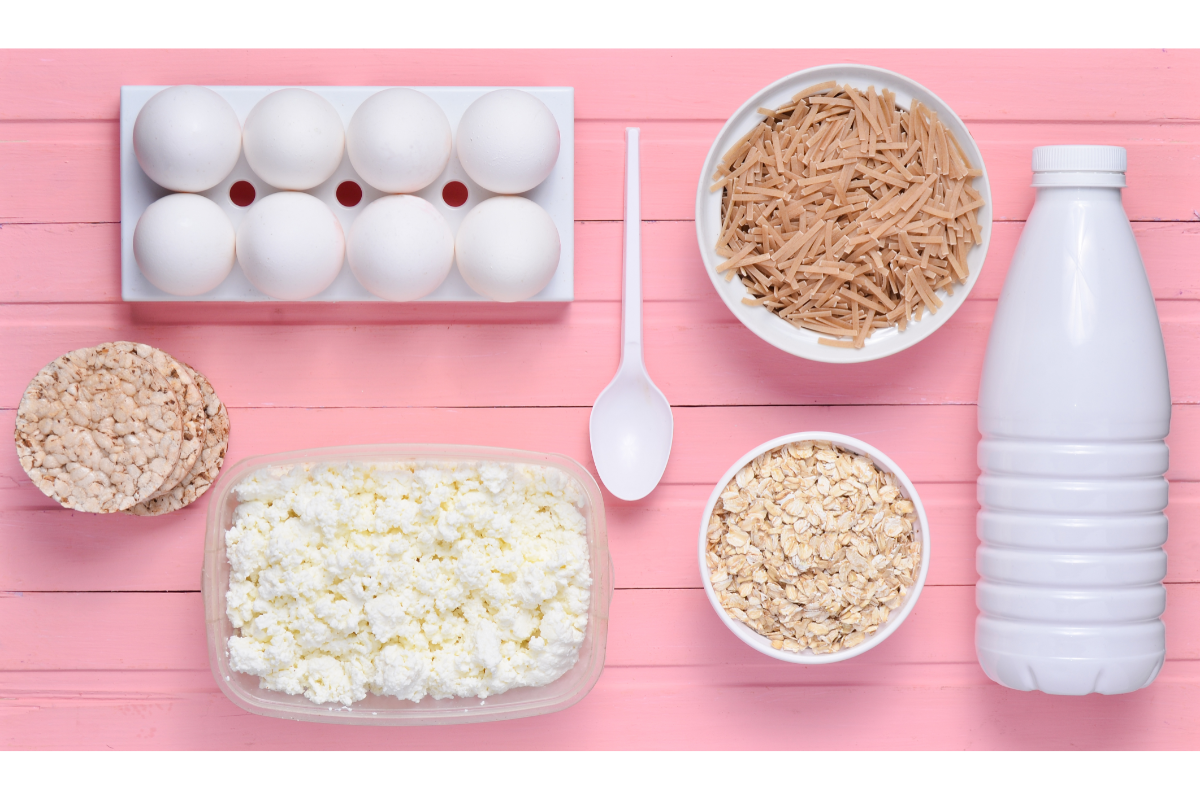Stress and anxiety can have a significant impact on our health and well-being. Fortunately, there are natural ways to reduce these symptoms, and diet is a powerful tool to help relieve stress and anxiety. In this article, we’ll explore the most effective anti-stress foods, which are backed by science, to help you feel more relaxed and calm on a daily basis.
What are stress and anxiety?
Stress and anxiety are two terms often used interchangeably, but they are not exactly the same thing. Stress is a normal physiological response to a difficult or dangerous situation. When we are faced with a stressful situation, our bodies release hormones such as cortisol and adrenaline, which increase our heart rate, breathing and blood pressure. Stress can be positive in some situations, such as when we need to face a challenge, but chronic stress can be damaging to our mental and physical health.
Anxiety, on the other hand, is a feeling of persistent worry or fear, even when there is no real danger. Anxiety may be linked to a stressful situation or may develop without any apparent cause. Symptoms of anxiety may include negative thoughts, sleep disturbances, restlessness and muscle tension.
It is important to note that stress and anxiety can be linked and reinforce each other. Chronic stress can increase the risk of developing anxiety, while anxiety can cause physiological stress symptoms. It is important to seek help if you suffer from severe and prolonged stress or anxiety.
What are the anti-stress foods?
Certain foods are particularly effective in helping to reduce stress and anxiety, thanks to their specific nutritional properties. Here are the most popular anti-stress foods:
- Foods rich in magnesium foods rich in magnesium, such as spinach, almonds, bananas and dark chocolate, can help reduce stress by regulating levels of the stress hormone cortisol. Studies have shown that magnesium can also help improve mood and reduce symptoms of depression.
- Foods rich in vitamin B: B vitamins, particularly vitamin B6 and vitamin B12, play an important role in regulating mood and anxiety. Foods rich in vitamin B include green leafy vegetables, nuts, lentils and eggs.
- Omega-3-richfoods: Omega-3s are essential fatty acids that help reduce inflammation in the body, which can help reduce stress and anxiety. Foods rich in omega-3 include oily fish, nuts and seeds such as macadamia nuts and chia seeds.
- Foods rich in antioxidants: Antioxidants help protect the body from oxidative damage, which can be caused by stress. Foods rich in antioxidants include berries, citrus fruits, green leafy vegetables and legumes.
Vitamin D and mental health
Vitamin D, often associated with bone health, also plays a crucial role in managing depression and anxiety. Studies have suggested a relationship between low levels of vitamin D and an increase in depressive symptoms, although this vitamin is not a complete substitute for traditional treatments for depression. (5)
The role of vitamin D in the brain
Vitamin D is considered to be an important neurosteroid for the brain. It increases the expression of genes that enable the synthesis of neurotransmitters such as noradrenaline, dopamine and serotonin, which are crucial for mood regulation.
Studies on vitamin D and depression
Several studies have shown that people with low vitamin D levels are more likely to suffer from depression. For example, one study found that the risk of depression increased by 85% in people with low vitamin D levels. Another study showed that vitamin D deficiency can increase the risk of depression in older people by 75% four years later.
How to obtain vitamin D
- Sun exposure: The skin produces vitamin D when exposed to the sun. It is recommended to spend 10 to 30 minutes in the sun each day, taking precautions to avoid sunburn.
- Diet: Foods such as oily fish (salmon, tuna, mackerel), eggs and fortified dairy products are good sources of vitamin D.
- Supplementation: Vitamin D supplementation may be necessary, especially in winter or for people with limited sun exposure.
Key points
- Prevention of depression: Maintaining sufficient levels of vitamin D may have a preventive effect against the development of depression.
- Overall Mental Health: Vitamin D deficiency may be linked to other mental health problems, such as anxiety and mood disorders.
- Medical advice: Before taking supplements, it is advisable to consult a healthcare professional.
How can these anti-stress foods help reduce stress and anxiety?
In fact, these anti-stress foods contain specific nutrients that have a positive impact on the body and mind, helping to regulate cortisol levels, improve mood and reduce inflammation. For example, magnesium helps to regulate cortisol, while omega-3s help to reduce inflammation in the body. By including these foods in your diet, you can help reduce the symptoms of stress and anxiety, as well as other related health problems, such as depression.
How can you incorporate these anti-stress foods into your diet?
In fact, incorporating these stress-relieving foods into your diet is relatively simple. You can include them in your daily meals by preparing smoothies, salads, fish dishes or snacks made with nuts or seeds. Here are some recipe ideas for including these stress-relieving foods in your diet:
- A spinach, banana and macadamia nut smoothie: mix a handful of fresh spinach, a banana, a handful of macadamia nuts, almond milk and a tablespoon of chia seeds for a smoothie rich in magnesium, omega-3s and antioxidants.
- A salad of lentils and leafy greens: combine cooked lentils, leafy greens, walnuts, sunflower seeds and a dressing of olive oil and balsamic vinegar for a meal rich in vitamin B and antioxidants.
- A grilled fish and vegetable dish: grill a fillet of salmon or trout, accompanied by leafy green vegetables and macadamia nuts for a meal rich in omega-3s, vitamin B and antioxidants.
In short, including anti-stress foods in your diet is a natural and effective way of reducing the symptoms of stress and anxiety. Foods rich in magnesium, vitamin B omega-3 and antioxidants are particularly beneficial in helping to regulate cortisol levels, improve mood and reduce inflammation in the body. By incorporating these foods into your daily meals, you can help improve your health and well-being in a simple and delicious way.
FAQ :
Q: Can diet really help reduce stress and anxiety?
A: Yes, certain foods can help reduce stress and anxiety levels in our bodies. Foods rich in magnesium, vitamin B, omega-3, probiotics and antioxidants are particularly beneficial.
Q: How can I incorporate these foods into my daily diet?
R: You can incorporate these foods into your daily meals and snacks. For example, you can add spinach to your smoothie, eat a banana or walnuts as a snack, eat salmon or chia seeds for omega-3s, and eat a broccoli salad or berries for dessert.
Q: Are there any foods I should avoid if I want to reduce my stress and anxiety?
A: There are no specific foods to avoid, but it’s important to limit the intake of processed foods, sugar and caffeine, which can cause inflammation and increase stress in our bodies.
References
- https://www.ncbi.nlm.nih.gov/pmc/articles/PMC4350893/
- https://pubmed.ncbi.nlm.nih.gov/30415609/
- https://www.ncbi.nlm.nih.gov/pmc/articles/PMC4999787/
- https://www.ncbi.nlm.nih.gov/pmc/articles/PMC7532825/
- https://www.ncbi.nlm.nih.gov/pmc/articles/PMC9468237/





